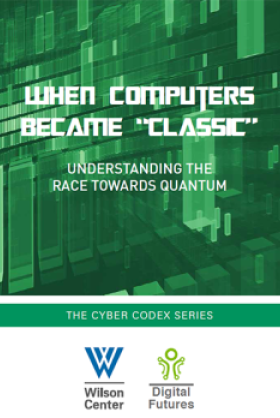When Computers Became “Classic”: Understanding the Race Towards Quantum





Quantum Physics, also referred to as quantum mechanics, is a theory that seeks to explain the behavior of particles on the universe’s smallest scales—the atomic and subatomic level. Upon its emergence in the early 20th century, quantum mechanics promised to challenge long-held foundational truths of Physics that had stood since the time of Newton. As is often the case in any new field, however, the work of those who first pioneered the field raised more questions than it provided many definitive answers. Thankfully, as all good scientific inquiry ought to, research into quantum mechanics has steadily built upon itself towards a greater and more nuanced understanding of the world around us.
Today, as the underling theory has become increasingly well understood, researchers and investors are beginning to think of ways to apply lessons of quantum mechanics towards real-world endeavors.
Three prongs of research and development have come to the forefront: quantum computing, quantum communication networks (quantum internet), and quantum sensors. While one day there will likely be a nexus of these three vectors, for the purposes of this white paper it is useful to understand each in their own right.
Progress on all three fronts is contingent upon successfully discovering a consistent method of controlling particles known as quantum bits, or qubits, that are the most basic unit of quantum mechanics; all that differs is the intended ends to which such a discovery will be applied. Because of the commonalities undergirding the various threads of quantum research, before jumping into a discussion of the contemporary race in innovation, it is important to first understand the underlying logica that dictates quantum mechanics as a whole.
When Computers Became “Classic”: Understanding the Race Towards Quantum by The Wilson Center on Scribd

Less and less of life, war and business takes place offline. More and more, policy is transacted in a space poorly understood by traditional legal and political authorities. The Digital Futures Project is a map to constraints and opportunities generated by the innovations around the corner - a resource for policymakers navigating a world they didn’t build. Read more


The Science and Technology Innovation Program (STIP) serves as the bridge between technologists, policymakers, industry, and global stakeholders. Read more



